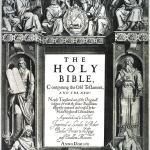Patrick Lee and Robert George offer a sharp critique of various forms of naturalist defense of traditional marriage in their recent Conjugal Union.
Defining human nature as a “pattern,” they argue that “it is not obvious that acting unnaturally is always morally wrong.” Even if “unnatural” is taken to mean “against nature,” there are cases when acting against nature is morally legitimate. An animal’s capacity to nourish itself is a capacity oriented to the good of the animal’s health, but there may be cases when blocking that capacity might be in the best interest’s of the animal. “Thwarting the goal of the nutritive power need not be contrary to the basic good of health.”
In another form, naturalism would argue that human nature has inherent ends or purposes, and that it is never morally legitimate to act contrary to those ends or purposes. Lee and George sift through the is/ought problems that arise here, concluding that the problem with this argument is not that it derives an ought from an is but that it illegitimately shifts from theoretical to practical reasoning. To derive the conclusion, it’s necessary to introduce a proposition along the lines of “that which contributes to the fullness of being that is due a (human) being is to be done or pursued,” but this practical axiom cannot be simply deduced from a notion of teleological nature.
Positively, drawing on “new natural law” theory, they offer an account of moral choice, not based on specific theological claims, that focuses on “basic human goods.” These basic goods are transcultural, and include goods pertaining to our physical existence (health), our nature as rational beings (knowledge, beauty), our capacity for creation (skillful performance), the harmony of body and soul, and social goods. Besides these, “In every culture, people seek to establish or maintain a harmony between themselves and more-than-human sources of meaning and value in the universe,” which is the “good of religion.”
Precisely here, the argument goes awry. Is “religion” as such a basic good? What if the more than human source of meaning is a false god, an idol? Don’t we need to be able to identify the genuine goods of religion from spurious goods? How can we do that? For Judaism and Christianity, we do that because God has acted in time in specific ways. If we say we can distinguish true from false gods without reference to these divine acts, then we have departed from the logic of biblical religion. If we say that we don’t need to distinguish true from false, then our defection from faith is even deeper.
Put it this way: It’s not clear how Eve could deploy the new natural law to parry the serpent’s temptation. After all, the fruit of the tree fulfilled several basic human goods – goods of knowledge, goods of the body, even, according to the serpent, religious goods (“you will be like gods”). Absent knowledge of God’s prohibition, how could Eve have known to reject the serpent? Indeed, it looks as if Eve was deceived precisely because she analyzed the temptation in terms of basic human goods.















